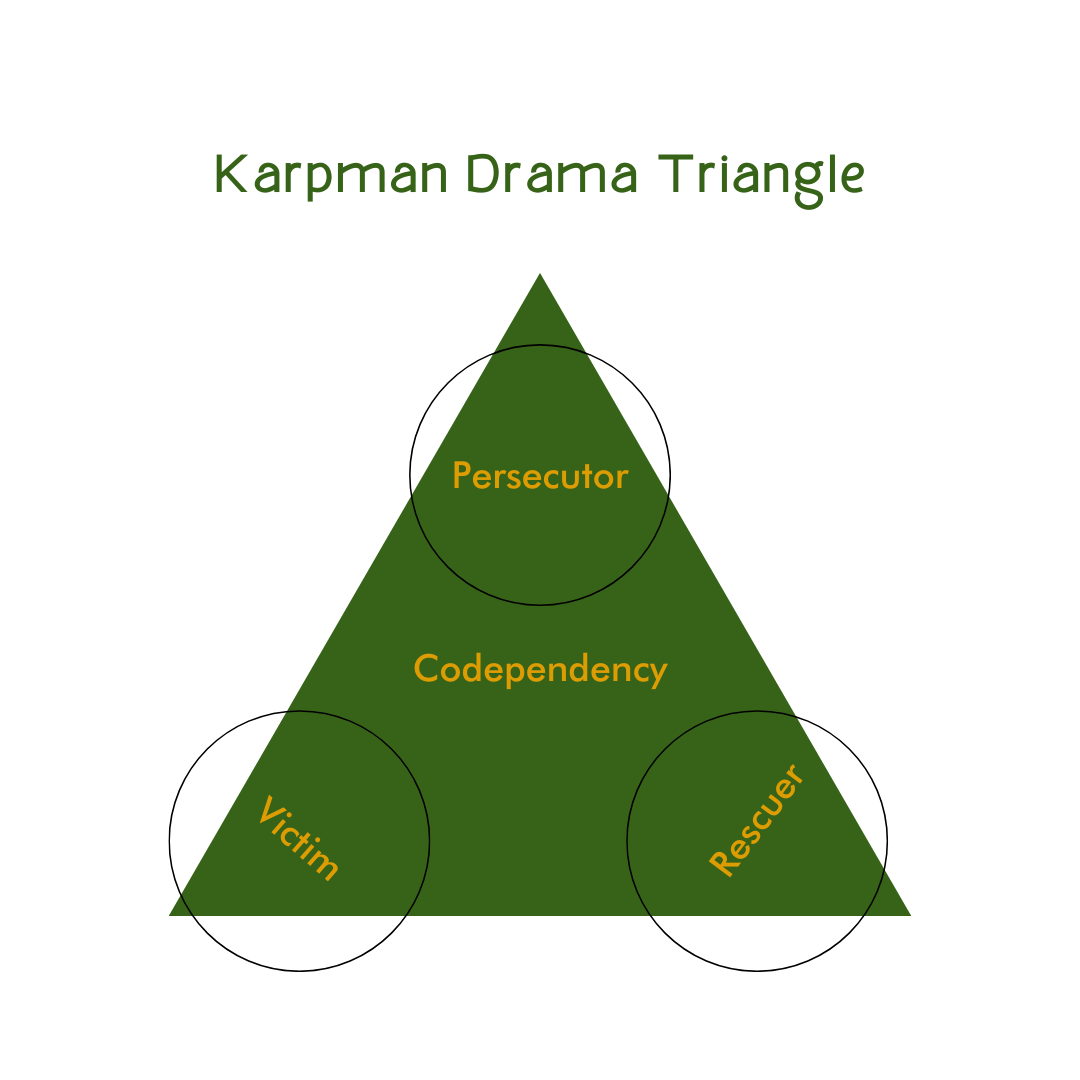Untangling Codependency
What do you think of when you hear the word codependent?
Do you think of AA or Al Anon?
Do you think of addiction or enabling behaviours?
It makes sense to have these images; but what if I told you that even without addiction, even without enabling, you can still struggle with codependency? At its root, codependency is a way of getting a very specific need met.
During episode 71 of The Relationship Factor Podcast, Executive Coach Jessica Yip said this,
“I think codependency ultimately doesn’t feel that good but it’s serving one purpose which is feeling needed…”
A common rhetoric we hear when exploring codependency is that there are “Givers” and there are “Takers”. While this oversimplified explanation may paint a helpful picture, it doesn’t fully encompass what actually happens in these relationships. At any given time, a Giver can shift to a Taker and vice versa. A wonderful visualization of this is the drama triangle.
You see, when a well-meaning Giver attempts to rescue a person they see as a victim, the person often portrayed as the Taker can either allow themselves to be rescued by the Giver—further falling into the role of victim—or they can push back placing the Giver into the role of persecutor. When this happens, the Giver often finds themselves falling into the role of victim because “They were just trying to help”.
When Helping Hurts
The struggle of codependency isn’t rooted in the longing to be helpful, it’s in the ways we approach being helpful. When we attempt to rescue or fix others' problems, we are doing them a disservice by not allowing them to figure it out on their own. We are essentially telling them with our actions that we don’t believe they are capable, even if they are. However, when we remove ourselves from the drama triangle completely, we are able to utilize that natural empathy in a more gentle, yet deeply boundaried way.
We can still be helpful, but only when it’s wanted or needed. We can still support our loved ones, but without sacrificing ourselves, or putting our needs last.
When we focus on caring for ourselves, and searching inward for our own needs and desires, we are able to remove the transactional approach from our relationships. When we are aware that we are worthy of love and tenderness no matter how much we have to give, we no longer try to fill the empty ache inside of ourselves with the desire to be needed.
If you are interested in learning more about codependency Melody Beattie’s Codependent No More is an essential read; and if you are hoping for more support in your journey of untangling codependency, we are here to help.
Book Here


